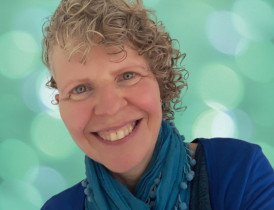MetaHealth
I'm currently studying a course in 'MetaHealth' - an analytical tool which looks for the root cause behind dis-ease in order to allow us to address it directly rather than just trying to reduce symptoms. If the cause behind a disease can be identified and released it obviously allows us to then make the journey back to wellbeing.
MetaHealth sees dis-ease as a process:
- Normal day-to-day life when well
- Something happens that sends us into stress. In MetaHealth this is knows as a trigger / stress-conflict / UDIN:
Unexpected
Dramatic
Isolating
No coping strategy
The stress comes into the body and is held somewhere in an organ tissue. The particular organ will depend on the nature of the stress but our vocabulary can often give clues - eg I couldn't swallow it / digest it; it stinks; I felt sickened; I can't get my head around it; I couldn't breathe; I couldn't bear to look; etc Each organ relates to a particular brain relay - Brain Stem / Cerebellum / Medulla / Cortex (this is determined by embryology - the way the baby develops in the womb) and each brain relay has its 'meaning' or 'lesson'. Eg the brain stem is about survival, the cerebellum is about our 'nest', the medulla is about self-worth and the cortex is about separation.
- In the Stress Phase we actually feel ok because we're running on adrenalin and cortisol. We might be colder than normal and more hungry as our body needs fuel to maintain the heightened activity of stress, but we generally don't have any symptoms at this point.
- Something will then happen that causes a 'shift'. This can be something that resolves the issue, or just some kind of a change which then sends the body into 'regeneration'.
- During this phase the body is repairing the changes that were done to the affected organ during the Stress Phase. For example if the lungs were affected, causing them to grow extra cells in order to cope with the demands placed on them, the body will now seek to remove these extra cells. It does this by looking for things in the environment that will help in this process for example bacteria and viruses. In the example of the lungs it could result in the person developing a chest infection. The 'dis-ease' results in cell death of the extra tissue that is no longer needed and this is expelled from the body in the form of a cough and phlegm.
- This point in the process is known as the Healing Peak. Half way through the Regeneration Phase the body will test itself to see if it has the necessary resources to recover from the dis-ease. Notice that this peak is a reflection of the Stress Phase. In the case of the chest infection this is where a person has been feeling ill for a few days and then they wake one morning thinking 'I feel much better today. I think I'll go back to work'.
- When they arrive at work they soon realise that this 'recovery' was short lived and that actually they are still feeling pretty rough and lacking in stamina. They still need a few more days to get their full strength back.
- If the person is able to take those few extra days then they should be able to complete the process and return to full health (9)
Unfortunately, in the West, we often push ourselves before we're ready. In the example above, if the person stayed at work, taking medication and drinking coffee to keep going, this pushes them back into the Stress Phase.
We can also be 're-triggered' back into the Stress Phase by events that remind us of the original conflict, meaning that we are sent back to the beginning of the process again. This results in what is known as a 'Hanging Healing'
Using the person's timeline history, their medical diagnosis and a knowledge of the organs and how they respond in each phase of the process, it is possible to work back to find the initial conflict and then to work with the person to devise a plan to support them back to health. This can draw on a range of different therapies depending on what is most appropriate for the person in their particular situation.
I am currently looking for case studies to expand my learning and experience in this field. If this is something that would interest you please feel free to contact me for further information. My email address is: robyn@equenergy.com
